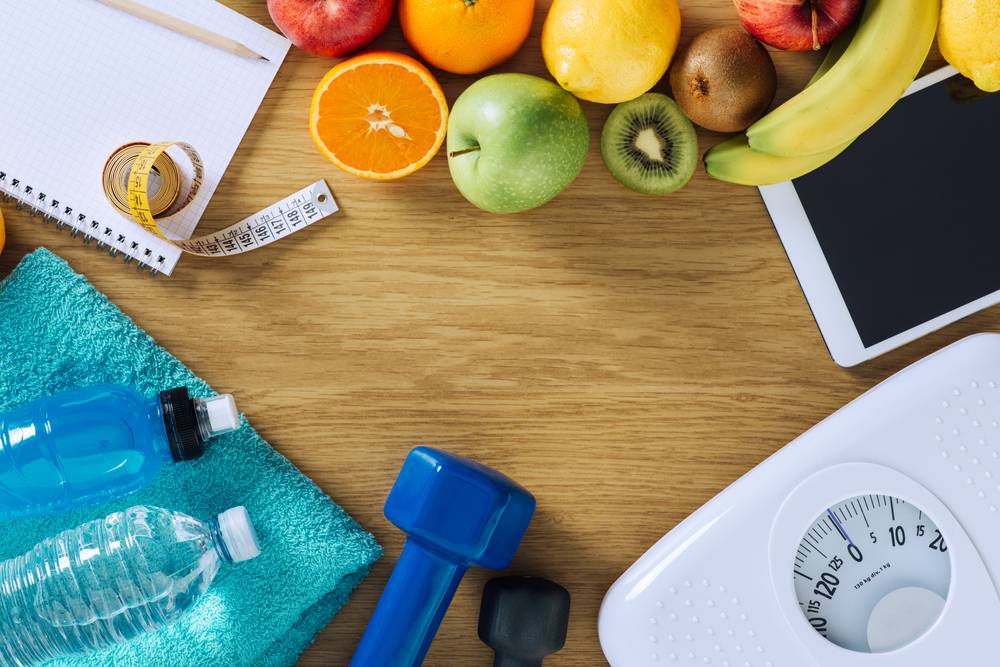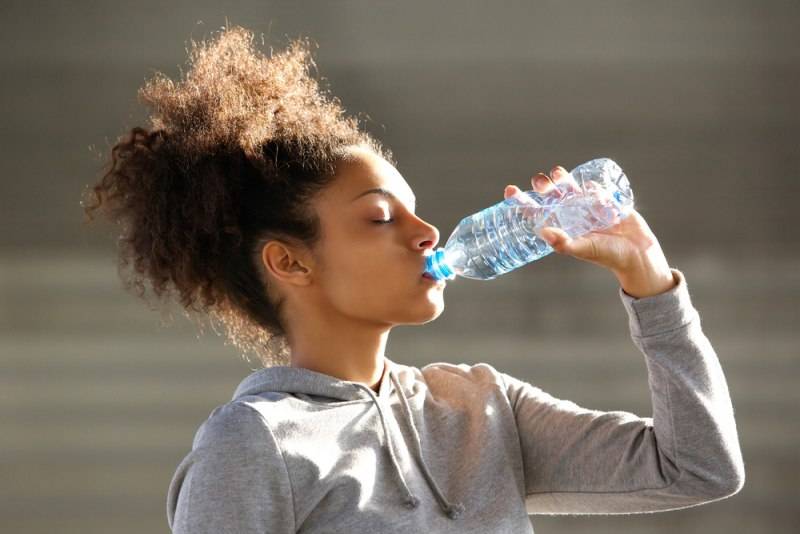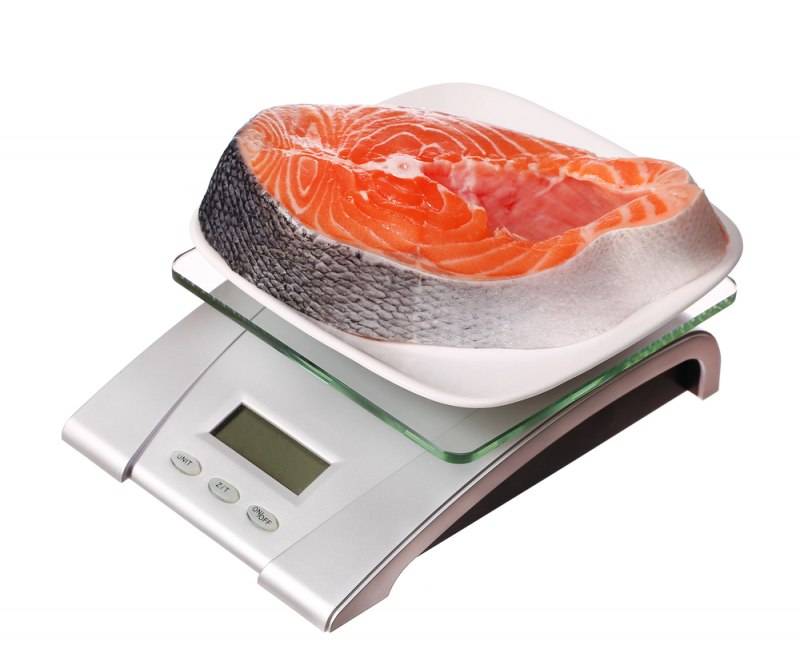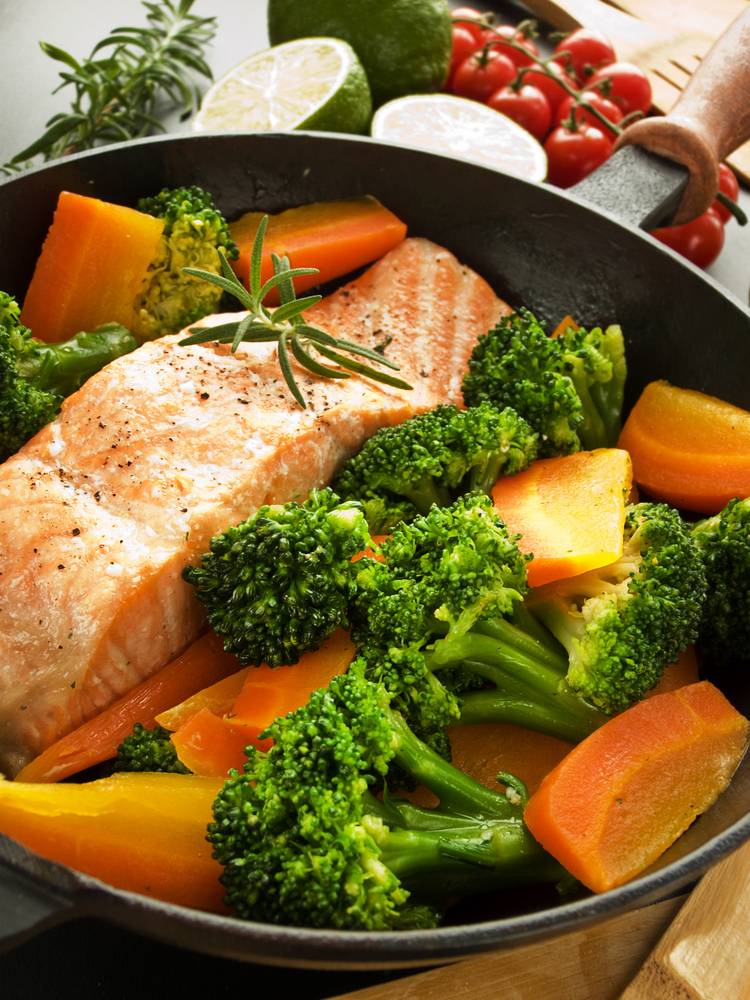New Year Resolution Check-In: 12 Pro-Tips On Achieving Your Weight Loss Goals
Losing weight is no easy task. While weight loss, staying fit and healthy are at the top of everyone’s New Year resolutions, only a few percentage of people actually follow through with their New Year resolutions. According to the Statistic Brain Research Institute, 45 percent of Americans make New Year resolutions. However, only eight percent of Americans are successful in achieving their resolutions. Here at Haute Living, we too have decided to get fit and stay fit throughout 2016 and many years to come. Many of us have tried almost every get fit, quick model and nothing has worked. Finally, we decided to try Selvera.
While many weight loss programs are touted as “weight loss that works,” the registered dietitians at Selvera focus on lifestyle changes that will work for you. There are three keys to Selvera: Counseling, Technology and Meals. Under the counseling key, you are matched with a registered dietitian, who will consult with you weekly or biweekly. Your Registered Dietitian will customize a nutrition, activity, and lifestyle plan just for you. If you’re a busy CEO, COO, etcetera, you can complete your consultations from anywhere by phone or video! The technology helps keep you on track to achieve your goals. As part of your membership, Selvera will send you a wireless scale and pedometer that provide you and your Registered Dietitian insight into your weight-loss progress. Your wireless scale and pedometer links to your app, where you also input your daily food log. All the information saved in your app is available for your dietitian to view. Even after you’ve achieved your weight-loss goal, your Registered Dietitian will automatically receive an alert if something doesn’t look right – and will proactively intervene at no additional cost! The scale and pedometer are yours to keep and use! You can opt to take advantage of Selvera’s curated meal plan or create a plan using your supermarket-bought foods.
We worked directly with Amanda Foti, MS, RD, CDN. Foti is a Registered Dietitian and a New York State Certified Dietitian-Nutritionist with a Masters in Clinical Nutrition from New York University. Foti helped us develop a realistic management plan that tackled nutrition, activity and our overall lifestyle. With our plan and devices in tow, we were ready to kick fat’s ass.
Each week we consulted with Foti on a number of things. In the beginning, we began our activity levels at just 10,000 (or 150 minutes of activity per week) steps a day, which is an overall default for most pedometer companies. It is believed, to qualify as a “moderately active” person, one must achieve 10,000 steps daily. We decided to not take advantage of Selvera’s meal plans, and challenged ourselves to curate a meal plan with our personal groceries, which included a plethora of lean proteins (fish, turkey meat, eggs, Greek yogurt, almonds, etc.), fibers (fruits and veggies) and healthy fats (avocados, cheese, dark chocolate, olive oil, oil-based salad dressings). There is a belief that eating fatty foods will not help you burn fat, but this is not true.
With foods approved by Foti, we made certain to have three meals a day. Breakfast usually included two boiled eggs on avocado toast (sea salt) or oatmeal, our favorite whole grain oats from Trader Joe’s, and of course tea. Lunch and dinner varied, but we made sure to achieve our daily keys, which were five keys of protein, five keys of fiber and three keys of healthy fats. As we all have heard a million times, breakfast is the most important meal of the day. But eating the right breakfast is essential. Protein and fiber revs up your metabolism to help you burn fat as well as keep you fuller longer. You wouldn’t drive your car without letting it warm up first because it won’t work the way it should, so why would you start your day without warming up your metabolism so it could work the way it should?
Fast-forward to the hard part. Once you’ve started, how do you maintain your lifestyle without feeling like you’re giving up too much of yourself? As editors of a magazine, work usually includes invites to previews and exclusive parties, which includes food, cocktails, and all things that can deter you from your goals. Here’s where the structure program works. Selvera’s dietitians advise against anything you will not be able to maintain long-term. So for us it was essential to learning how to eat right, stay fit and incorporate that at work events, happy hours etc.
While we can give you a step-by-step process, we all know you’re busy and want us to get to the point. We learned a number of things during our Selvera programs but below are a few tips that are crucial to weight loss:
- Dehydration and sleep deprivation can shut down metabolism. In addition to hitting your nutrient keys, it’s essential to consume water, lots of it, at least half of the amount you weigh in ounces. Also, get enough sleep. No sleep leads you to make poor nutrient decisions, such as a large latte to keep you up and help you focus.
- Hydration levels have a big impact on energy levels, metabolism, food cravings and our mood. Even modest amounts of dehydration will cause our body to compensate energy, burning less calories and experience fatigue and carb cravings. Aim for at least 48-64 oz. day.
- Not only will dehydration decrease your metabolism and affect energy levels but it may also cause you to feel constantly hungry. Our thirst and hunger cues both come from the hypothalamus in our brain making it difficult for us to know the difference. Best way to avoid this is to stay on top of your fluid intake throughout the day. Aim for at least 64oz. /day and more if you’re working out! Keep a water bottle on you at all times and make it a point to drink it! If we wait until we feel thirsty, we’re already dehydrated.
- Portion control is important. Invest in a food scale, which will help teach you portion control and keep you from eating more than you should.
- On days you know you will have work events, happy hours, power business lunches, etc., up your activity level prior to these events. For every cocktail, have a glass of water. If the foods will not be quite healthy, have a high protein snack, which will keep you full and ensure you will eat less of the unhealthy stuff.
- Alternating between water and alcoholic beverages will help keep your alcohol intake in check and help keep you hydrated. If you want to avoid drinking all together grab a club soda and skip the vodka, it’ll help trick your brain and your co-workers.
- Planning is key so investigate as much as you can beforehand. Know what time your event is and if it will throw off your typical meal/snack time. If you have to eat there make sure there are some healthy options by looking up the menu. If no food or unhealthy foods are being offered, eat a high protein snack beforehand to curb appetite.
- If the food offered is going to be buffet style, avoid grazing and go with the one plate rule. Choose one appetizer sized plate, and fill with selections of items you want to try. Take your time and enjoy. Once the plate is gone, you know you’re done.
- As stated previously, increase lean protein, fiber and good carbs (whole grain based), decrease simple (or processed) carbs and (added) sugars. Simple carbs and sugars add no real value to your body, so instead swap them out for good carbs (aka whole grains to include fibrous choices). That means swap white rice for brown rice, swamp Irish potatoes for sweet potatoes, and try to avoid added sugar as much as possible including natural and artificial sweeteners.
- Make sure all of your grain products like crackers, bread, oatmeal, rice are 100% whole grain to ensure healthy fiber intake. This will support your weight loss efforts, improve gut health, digestion and support heart health.
- Protein takes more energy to break down compared to carbohydrates and fats because of the higher thermic effect. This means your body will be burning more calories to digest protein sources. Fiber doesn’t have the same effect but consuming fiber can slow down digestion absorption of simple carbs and sugars eliminating high glucose spikes in the blood.
- Every time you consume food, your body has to use energy and heat aka calories to break it down and absorb the nutrients. Protein requires your body to use more of this energy meaning you’ll be burning more calories consuming a high protein diet as opposed to a high carb diet. If you were to compare two diets with the same calorie amount but calories in diet No. 1 came from protein and fiber and calories in diet No. 2 came from processed foods and simple carbs, you would lose weight on diet #1. Protein and fiber also help to keep you satisfied longer. Simple carbs digest easily and quickly leaving you hungry soon after consumption.

















